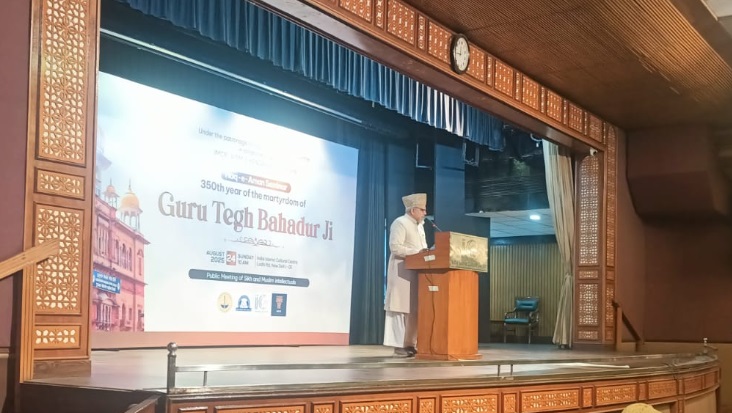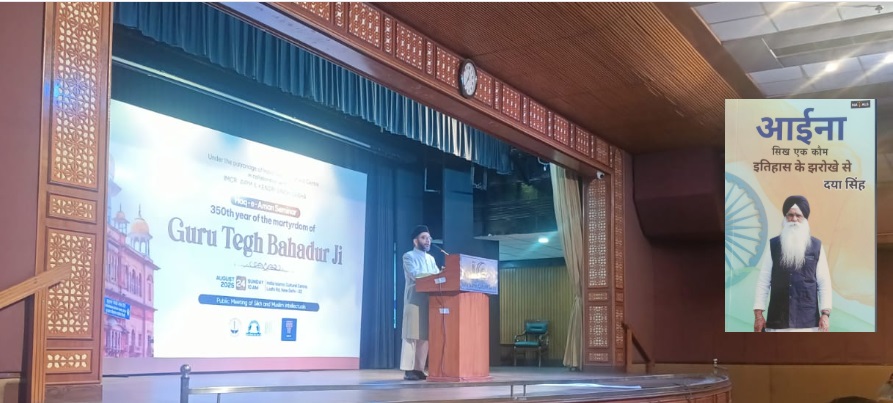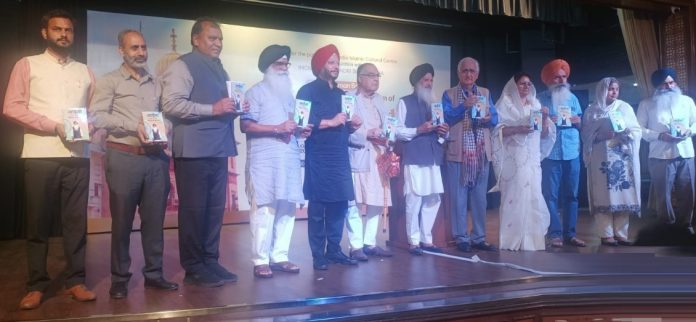New Delhi: Sikh and Muslim intellectuals gathered at the India Islamic Cultural Center (IICC) on Sunday to commemorate the 350th year of Guru Tegh Bahadur’s martyrdom. The seminar, titled “Haq-e-Aman,” brought together political leaders, jurists, and community representatives who called for renewed commitment to justice, unity, and freedom of conscience.
Sadatullah Hussaini, President of Jamaat-e-Islami Hind (JIH), said Guru Tegh Bahadur’s sacrifice stands as a beacon against tyranny and must guide the fight for religious freedom today. He reminded that neither monarchs nor elected governments have the authority to curtail conscience. “History should be a torch that guides us, not a weapon that divides us,” Hussaini declared, stressing common ground between Islam and Sikhism in resisting oppression and standing for equality.
Salim Engineer, JIH Vice President, urged communities to engage in direct dialogue without political or media intermediaries. He warned that divisive forces exploit faith for power and reiterated that genuine religions promote fraternity, not conflict. Reflecting on past tragedies, he said India’s greatest need today is love, trust, and collective struggle for justice.
Former Jammu and Kashmir Chief Minister Farooq Abdullah voiced concern over rising fear and erosion of humanity in society. He praised the Sikh community’s discipline and urged all Indians to uphold dignity and mutual respect. Gurdeep Sappal of the Congress Party described Guru Tegh Bahadur’s martyrdom as central to India’s pluralistic identity, while former Union Minister Salman Khurshid highlighted the importance of interfaith dialogue.
Former MP Mohammad Adeeb criticized divisive ideologies that question Muslim patriotism, recalling sacrifices made by minorities since Partition. Justice Iqbal Ansari, former Chief Justice of Patna High Court, emphasized compassion and condemned violence against innocents in conflicts such as Gaza.
The seminar also heard proposals for strengthening minority rights, including professional associations to build resilience. Convenor Daya Singh suggested a “Haq-e-Aman Yatra” as a journey for peace, reminding that India’s heritage lies in equality and fraternity.
The event concluded with a resounding affirmation that Guru Tegh Bahadur’s legacy transcends religion and belongs to the conscience of India. His martyrdom remains a reminder that justice, unity, and freedom of belief are the foundations of the nation.






